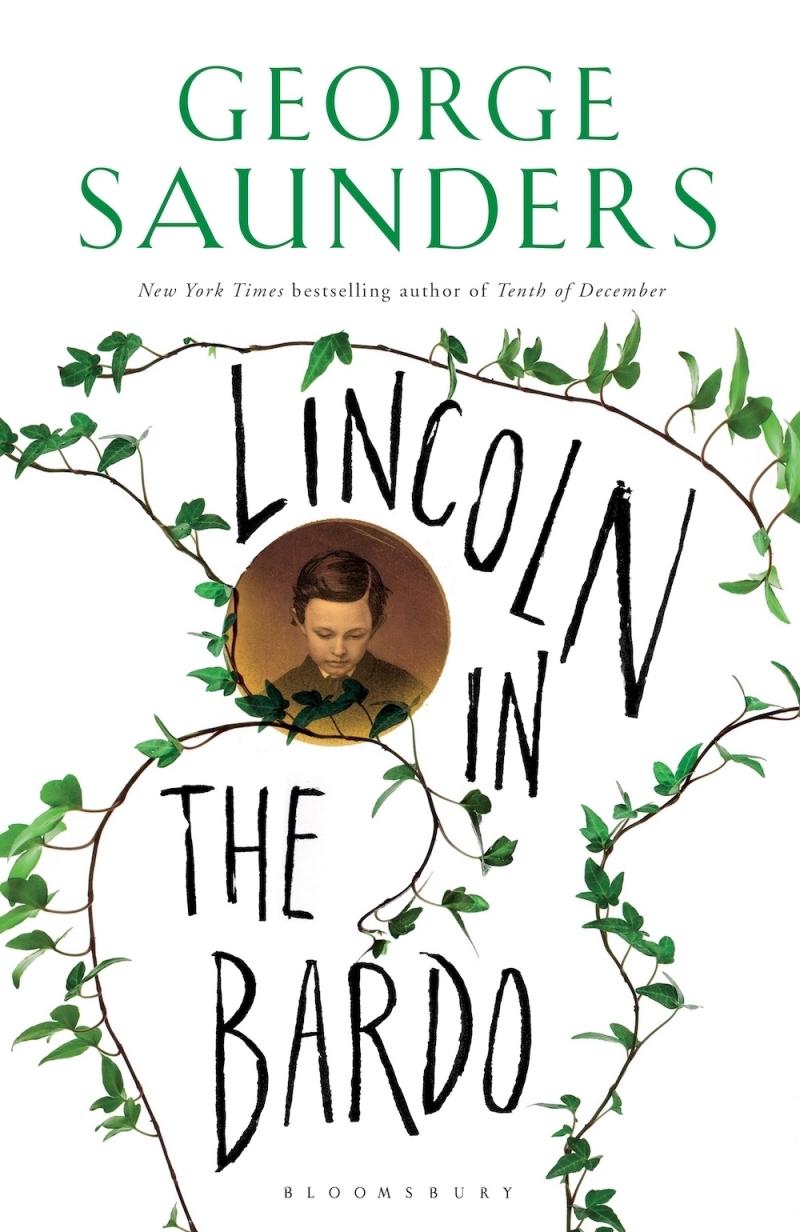George Saunders has written a historical novel. Of course, this being Saunders, author of four volumes of dystopian short stories about contemporary America (the wonderful Tenth of December is the most recent), it’s unlike any other. This is a tale told by ghosts, three in particular, who inhabit the graveyard in Georgetown where Willie, Abraham Lincoln’s 11-year-old son, dead from typhoid, lies interred.
The urbane voices of hans vollman, roger bevins iii and the reverend everly thomas (their names are lower-case throughout, perhaps because they are shadows of their former selves) recount the events of the night of the funeral, when Lincoln comes to the crypt to visit his dead son. The bardo is a Tibetan Buddhist term (Saunders is a Buddhist) for the transitional realm before death fully claims the reluctant soul – and the souls trapped in this cemetery are very reluctant. In fact, they don't want to admit that they’re not still in "that other place", ie alive. The D word is a no-no.
This may sound morbid but hilarity creeps in
This takes a little getting used to, but once you’re in the swing of it, it’s hypnotic and beautiful, and not unlike his short stories in style – staccato, wry, short-paragraphed - even though we’re in 1862 (Lincoln was assassinated three years later). Boldly, Saunders includes brief, often contradictory extracts from actual biographies, letters and accounts of the civil war, so that his research takes centre-stage in vivid snippets. These are interspersed with the fictional voices of vollman and co. At first glance, it looks like a book of footnotes, but don't be put off. “Your reign presages a terrible time when all of our liberties shall be lost in favor of the rights of the monolith. The founders look on in dismay” (from The Villain Li ncoln by RB Arnolds). Sound familiar?
ncoln by RB Arnolds). Sound familiar?
“If death is in the room, it’s pretty interesting… To me, it’s what you should be thinking about all the time,” Saunders has said in an interview. Well, death is never out of the room in this novel, though life is just as vivid and poignant. The grieving Lincoln nails it: “Horrible trap. At one’s birth it is sprung. Some last day must arrive. When you will need to get out of this body. Bad enough. Then we bring a baby here. The terms of the trap are compounded. That baby also must depart. All pleasures should be tainted by that other knowledge. But hopeful dear us, we forget.”
This may sound morbid but because Saunders presents us with characters in various aspects of denial about their deaths – the words sick-box and sick-form are used instead of coffin and corpse – hilarity creeps in. How you lived determines how your ghost manifests: in vollman’s case, he’s encumbered by “a tremendous member” as he hopes soon to be reunited with his much younger wife and finally consummate the marriage. roger bevins iii – gay, slashed his wrists when rejected - has a “bounty of extra eyes, ears, noses and hands”, to better appreciate the beauty of the world, “stocked with every sublime thing”. And the reverend, who actually does know he’s dead but doesn’t like to talk about it, has his mouth open in a permanent O of terror.
A cacophony of other ghostly voices (sometimes too many) join in: carousing bachelors, one of whom had made a drunken leap off a silo; slaves regretting their acquiescence; a couple of cursing parents, whining that their children never come to visit them; a former hunter, now atoning by lovingly comforting each of the hundreds of animals he killed. All are obsessed with aspects of their previous lives and repeat their stories to whoever will listen. What draws them together is the sight of Lincoln holding his dead child – or sick-form – something the cemetery has never witnessed before. The touching, the lingering, the kind words whispered directly into the ear – this gives them hope, as well as respite from the “devastating sameness” of limbo in the graveyard. It’s boring being a ghost. But when will they realise that they have to move on? Lincoln in the Bardo is magnificently inventive and all-encompassing. Death is in the room, but it’s the marvellous details of life on earth that win the day.
- Lincoln in the Bardo is published by Bloomsbury
- More book reviews on theartsdesk















Add comment